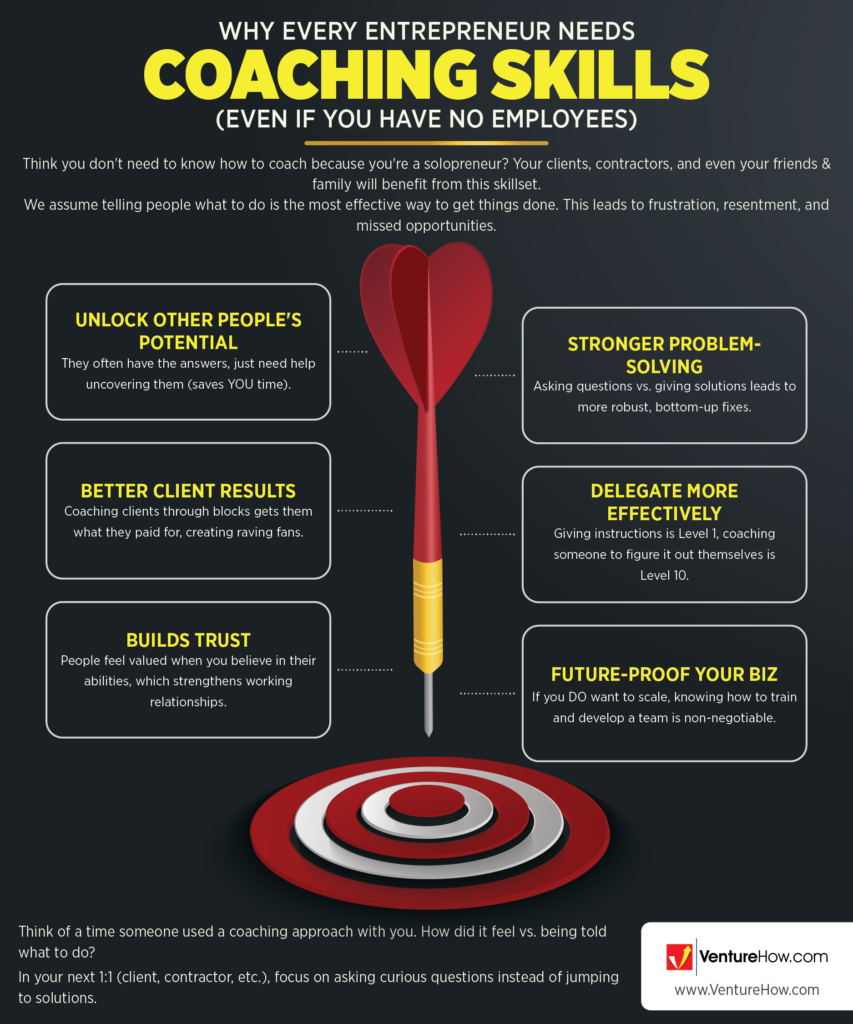Why Every Entrepreneur Needs Coaching Skills (Even if You Have No Employees)
By: A Staff Writer
Updated on: Sep 02, 2024

Why Every Entrepreneur Needs Coaching Skills (Even if You Have No Employees)
Think you don’t need to know how to coach because you’re a solopreneur? Your clients, contractors, and even your friends & family will benefit from this skillset.
We assume telling people what to do is the most effective way to get things done. This leads to frustration, resentment, and missed opportunities.
- Unlock other people’s potential: They often have the answers, just need help uncovering them (saves YOU time).
- Stronger problem-solving: Asking questions vs. giving solutions leads to more robust, bottom-up fixes.
- Better client results: Coaching clients through blocks gets them what they paid for, creating raving fans.
- Delegate more effectively: Giving instructions is Level 1, coaching someone to figure it out themselves is Level 10.
- Builds trust: People feel valued when you believe in their abilities, which strengthens working relationships.
- Future-proof your biz: If you DO want to scale, knowing how to train and develop a team is non-negotiable.
Think of a time someone used a coaching approach with you. How did it feel vs. being told what to do?
In your next 1:1 (client, contractor, etc.), focus on asking curious questions instead of jumping to solutions.